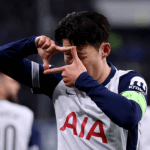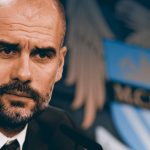In the dark days of communism, foreign footballers in Russia would have been as welcome as a biting, Siberan winter.
But the country’s rapid transformation from drab, central control to enthusiastic private wealth has created a Russian revolution in soccer with its clubs claiming two of the last four UEFA Cup titles, successes built on bringing in some of the best playing and coaching talent.
“I earn ten to 15 times more here than I received being a Palmeiras player at home,” said CSKA Moscow’s Brazilian international striker Vagner Love, the Russian league’s top scorer with 20 goals last season.
Signing international players is still a new concept in Russia.
In addition to a more business-oriented approach to the sport, the country’s youth football infrastructure collapsed along with the Soviet Union in 1991, forcing clubs to seek players from abroad.
In 1995, league underdogs Nizhny Novgorod pioneered the acquisition of foreign talent, introducing two Brazilians into their squad.
But the Brazilian pair looked timid and awkward.
“We expected a lot but received almost nothing,” Nizhny manager Valery Ovchinnikov said about his Brazilians, who were quickly labelled “Beach Boys.”
Since that inauspicious start, Russian scouts have been quick learners, but so have their targets.
Some foreign players have been able to use Russian sides as stepping stones for future moves to bigger, richer western European clubs.
Argentinian striker Fernando Cavenaghi and Serbian full back Nemanja Vidic both played at Spartak Moscow before signing for French side Bordeaux and European champions Manchester United respectively.
Croatian forward Ivica Olic, currently starring with German Bundesliga title-chasers Hamburg, once played at CSKA Moscow alongside Brazilian striker Jo, now on Manchester City’s books but on loan at Everton.
Slovakia defender Martin Skrtel played for Russia’s wealthiest side Zenit St Petersburg, the 2008 UEFA Cup winners, before Liverpool bought him last year.
However, not all foreign players are in a hurry to accept the first offer from the west.
Portuguese international midfielder Danny, lured by Zenit from Dynamo Moscow in a national record 30-million-euro deal last year, said he was happy playing in Russia, in part because of the quality of his foreign coach.
“Our manager Dick Advocaat is a great coach and I enjoy every moment of our work,” Danny said.
Life in Russia can be tough for foreign footallers. Those playing in provincial Russian cities face poor infrastructure, lack of entertainment and huge language barriers.
Furthermore, just as in the west, expectations in Russia are high, especially for coaches.
Italy’s veteran manager Nevio Scala and former Danish great Michael Laudrup both failed to improve Russia’s nine-time champions Spartak Moscow and were sacked.
Artur Jorge of Portugal was also axed after just several months at the helm of CSKA Moscow who are now under the control of Brazilian legend Zico on a deal worth 3.5 million euros.
In stark contrast, however, two Dutchmen have proved successful.
Advocaat, who took the helm at Zenit St Petersburg in 2006, led the side to their first ever Russian title just a year later. He has also won the UEFA Cup and the European Super Cup.
The 60-year-old is rumoured to receive four million euros a year, making him the highest-paid manager in the Russian Premiership.
Guus Hiddink took over Russia’s national side in 2006 and led the team to the Euro 2008 semi-finals, where they lost to eventual winners Spain.
Hiddink’s Russian success caught the eye of Chelsea owner Roman Abramovich, who hired him as a caretaker to replace Luiz Felipe Scolari. The Dutchman is reportedly paid nine million euros annually.
- Soccer News Like
- Be the first of your friends!




















ABOUT THE AUTHOR
SoccerNews
Soccernews.com is news blog for soccer with comprehensive coverage of all the major leagues in Europe, as well as MLS in the United States. In addition we offer breaking news for transfers and transfer rumors, ticket sales, betting tips and offers, match previews, and in-depth editorials.
You can follow us on Facebook: Facebook.com/soccernews.com or Twitter: @soccernewsfeed.